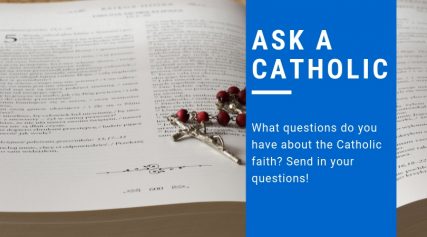What questions do you have about Catholicism? Submit them online, or fill out the form below.
By Mitch Finley
What is the Catholic view on predestination?

First, I feel obliged to point out that the topic of your question is far from being of much interest among Christians today, particularly among Catholics and the mainline Protestant traditions. However, to reply to your question, in Christian theology the term “predestination” refers to a belief that God either does or does not want all to be “saved.” The debate about this goes back to at least the 4th century, and we don’t have the space here to discuss the entire history of the debate. Therefore, we’ll limit ourselves to the main points of the controversy as it has existed since the 16th century Protestant Reformation.
Martin Luther (d. 1546) rejected the Catholic principle that God desires the salvation of all people and that God is, in essence, a gracious God who wants us to cooperate freely with divine grace (i.e. God’s self-gift to us) in working out our salvation. Luther insisted that humans can do nothing on their own and that God has mercy on whomever he wills. Lutherans today, however, for the most part do not agree with Luther and find in the Scriptures a gracious God whose love can be relied upon unconditionally.
A Lutheran document from 1580—nearly two decades after Luther’s death—called “The Formula of Concord” (Article XI), insists that salvation is indeed God’s desire and that we should live thankful for the Gospel.
John Calvin, (d. 1564) to whom the Presbyterian church traces its origins, pushed his understanding of predestination even farther. Reading Romans 9:13 literally, he concluded that God loves some and hates others, and so he predestines some to heaven and others to hell. Again, today’s Presbyterians, by and large, do not believe what Calvin believed.
This illustrates one of the main historic differences between Protestant and Catholic theology and spirituality. Founders such as Luther and Calvin emphasized the radical “fallenness” and unworthiness of humankind, even after God’s redemptive activity on our behalf in Christ. Today’s mainline Protestant churches and the Catholic church insist that yes, people are unworthy of salvation, but at the same time God transforms us and makes us new beings in Christ and the Holy Spirit. No matter how corrupt human nature may be, or may become, Catholic and mainline Protestant theological traditions insist that we must leave the door at least a little bit open to allow for human nature to be touched by God’s grace (the divine presence) and to have the capacity to freely respond to that grace.





